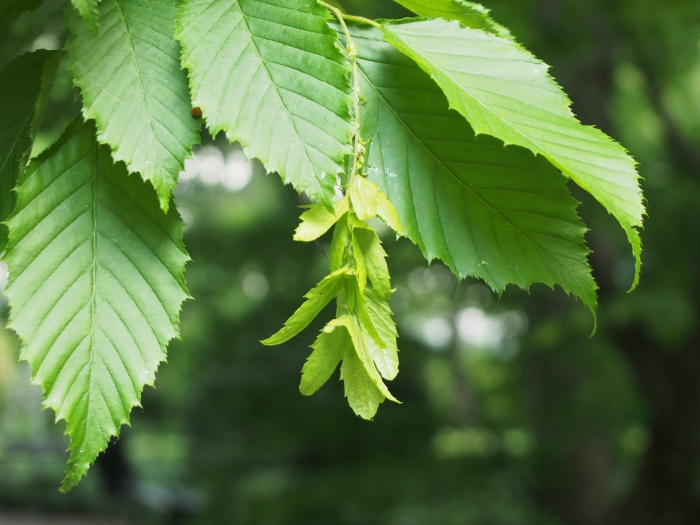American Hornbeam
(Carpinus caroliniana)
American Hornbeam (Carpinus caroliniana)
/
/

Agnieszka Kwiecień, Nova
CC BY-SA 4.0
Image By:
Agnieszka Kwiecień, Nova
Recorded By:
Copyright:
CC BY-SA 4.0
Copyright Notice:
Photo by: Agnieszka Kwiecień, Nova | License Type: CC BY-SA 4.0 | License URL: https://creativecommons.org/licenses/by-sa/4.0 | Uploader: Nova | Publisher: Wikimedia Commons | Title: Carpinus_caroliniana_Grab_amerykański_2019-06-01_03.jpg | Notes: {{Information |Description={{en|1=Cornus_alba_sibirica, Brno, CZ}} {{cs|1=Cornus_alba_sibirica Brno, CZ}} |Source={{own}} |Author=[[User:I.Sáček, senior|I.Sáček, senior]] |Date= |Permission= |other_versions= }} [[Category:Cornus
















































































Estimated Native Range
Summary
Carpinus caroliniana, commonly known as American Hornbeam or Blue Beech, is a deciduous small tree or large shrub native to the understory of deciduous forests in Eastern and Central North America, including the Eastern and Midwest U.S. It typically grows to a height of 20-30 feet (6-9 meters) and a width of 20-35 feet (6-11 meters), with a slow to moderate growth rate. The American Hornbeam has a distinctive, smooth, gray, fluted trunk and a rounded to irregular crown. Its leaves turn attractive shades of yellow, orange, and red in the fall, adding seasonal interest to garden landscapes.
The American Hornbeam is valued for its hard wood and ornamental features, including its attractive bark and fall foliage. It is often used in naturalistic plantings, as an understory tree in larger landscapes, and occasionally as a hedge due to its ability to withstand heavy pruning. It prefers moist, well-drained soils, but can tolerate a range of soil types, including wet soils. It is best grown in part shade to full shade and requires medium amounts of water. While generally pest and disease resistant, it can be susceptible to leaf spot and canker in poor conditions.CC BY-SA 4.0
The American Hornbeam is valued for its hard wood and ornamental features, including its attractive bark and fall foliage. It is often used in naturalistic plantings, as an understory tree in larger landscapes, and occasionally as a hedge due to its ability to withstand heavy pruning. It prefers moist, well-drained soils, but can tolerate a range of soil types, including wet soils. It is best grown in part shade to full shade and requires medium amounts of water. While generally pest and disease resistant, it can be susceptible to leaf spot and canker in poor conditions.CC BY-SA 4.0
Plant Description
- Plant Type: Tree
- Height: 20-30 feet
- Width: 20-35 feet
- Growth Rate: Slow
- Flower Color: N/A
- Flowering Season: Spring
- Leaf Retention: Deciduous
Growth Requirements
- Sun: Part Shade, Full Shade
- Water: Medium
- Drainage: Fast, Medium
Common Uses
Bird Garden, Butterfly Garden, Hedges, Street Planting
Natural Habitat
Understory of deciduous forests in Eastern and Central North America
Other Names
Common Names: Musclewood, Muscle Beech, Water-Beech, Blue-Beech, Ironwood, Bois De Fer, Charme De Caroline, Charme De La Caroline, Amerikansk Avenbok
Scientific Names: , Carpinus caroliniana, Carpinus caroliniana var. caroliniana, Carpinus betulus var. caroliniana, Carpinus caroliniana var. tropicalis, Carpinus tropicalis var. mexicana,
GBIF Accepted Name: Carpinus caroliniana Walter